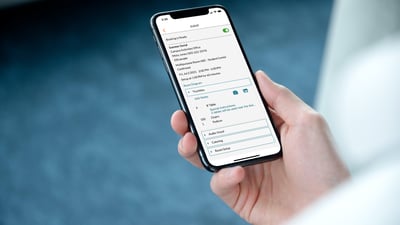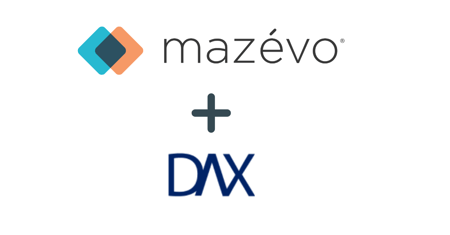If your organization provides resources (AV equipment, catering, etc.) and services (like room setup) for events, you know how challenging it is to keep your staff informed. You also know that if anyone fails to communicate important information promptly, it’s likely that one or more events won’t go well, and you’ll spend some time in the coming days dealing with unhappy customers!
And the challenges and risks are amplified if resources are limited at your organization and you don’t have much “cushion.” Fortunately, there are several ways to keep team members informed. You just need to decide which one or ones you’ll use based on their pros and cons.
Print Reports
This, of course, is the old-school approach to communication. Most scheduling systems can produce a report listing upcoming events and their details. Mazévo has what’s called the Daily Operations Report—although we don’t recommend printing it for several reasons indicated in the “cons” below.
Pros:
- It’s simple. Hand someone the printed report, and they can see what they need to do.
- It’s secure. Report recipients don’t need to have a login for your scheduling software.
Cons:
- Event changes are common. A printed report is outdated the instant event information is updated. Consequently, you’ll need a strategy for notifying team members of changes.
- It’s wasteful. Even if you recycle printed reports, this approach still uses lots of paper.
- If you want people to print their own reports, you have to show them how to access and use your scheduling system.
✅ Ask your service providers what information they need to see on a report. Reports typically can be configured to show only types of services relevant to recipients. For instance, you could produce a setup report for the AV department that only shows events that require AV services.
Subscribe to Reports
![]()
Mazévo enables you to have reports emailed to people automatically. Typically, reports are delivered to team members first thing in the morning and indicate service needs for the day. The person who receives the report might print a hard copy or save it electronically.
Pros:
- This is also a simple solution.
- You can ensure that the people who need reports are receiving them.
- Recipients don’t have to log in to the system.
Cons:
- Emailed reports, like printed reports, are outdated as soon as something changes.
- If recipients tend to print reports, you use a significant amount of paper.
✅ This method usually works best if you’re delivering reports with the current day's schedule. Including future dates is often unnecessary and can waste paper.
Publish Report Links
With this method, you configure the report to contain the details recipients want to see. You then save those settings, generate a link to the report, and send the link to service providers.
They can bookmark that link on any electronic device for future use. When they click it, Mazévo generates the report with current information. You don’t need to send the link again, as it continues to work the same way on any future date.
Pros:
- This is a simple solution. Anyone can run a report whenever they need it by clicking the link. No Mazévo login is required.
- Reports always display real-time data as of when the person clicked the link.
- You aren’t filling inboxes with frequent emails.
- The recipient can click a link on their phone or other mobile device to see the day’s information. No printing is required.
Cons:
- If someone loses the link, you must send it to them again.
- Recipients can’t change the report settings—although that can be a good thing, too!
✅ Include report links in training materials for new employees. If you have an internal web page for the scheduling department, you can also post report links there.
Use the Mazévo Mobile App

The Mazévo mobile app gives users access to real-time event details on their phones or tablets. They can view setup information, room diagrams, and more right from their phone's web browser.
They can also indicate when services have been delivered and enter notes in the app, so everyone knows which event setups are complete without having to visually inspect rooms.
Pros:
- Setup information is always current.
- This approach doesn’t require any special software on a user’s mobile device—just a web browser.
- Everyone benefits from real-time information on completed setups.
- The app provides quick access to room setup diagrams for events.
- Team members can enter notes and take pictures, which managers can review in the Mazévo work log.
Cons:
- Team members must have a mobile device.
- People must be comfortable using an app and may need some training.
Use Automated Change Notifications
Mazévo enables you to arrange for specific users to receive email notifications if a future event requiring services is changed or canceled. These notifications are typically used with one or more of the communication methods listed above.
Pros:
- This is a great way to ensure staff members are notified of last-minute changes.
- The emails are appreciated by people who like to know what’s coming up without having to run reports.
Cons:
- If you have high event volumes, the frequent notifications can get “lost in the shuffle.”
✅ Make sure team members know they can opt in or out of these notifications depending on their role and work style.
Use the Activity Log
The Activity Log lists recent changes to events. Rather than people receiving an email for every change, they can run a log report and see a list of all recent changes in one place.
Pros:
- Filtering the log allows you to see only the changes you are interested in. For instance, you may want to see all the events that were added or canceled over the last few days. Or you may want to see any AV orders that have changed since you last looked.
- This method also lets you see what the change was and who made the change. For example, you can see if the quantity of an item increased from 1 to 3 and when the change was made.
Cons:
- This approach requires that you run the log report to see changes. You aren’t notified as they happen.
Relying on Your Scheduling System To Keep Everyone Informed
Whichever methods above you choose to use, it’s nice to know that communicating with your team—particularly when resources are tight, and the pressure is high—doesn’t have to be difficult.
By thinking through the best ways to make information available and then leveraging Mazévo’s powerful tools, you can ensure that everyone has the details they need to do their job well and make customers happy!
Interested in seeing these tools in action? Schedule a Mazévo demo today!



